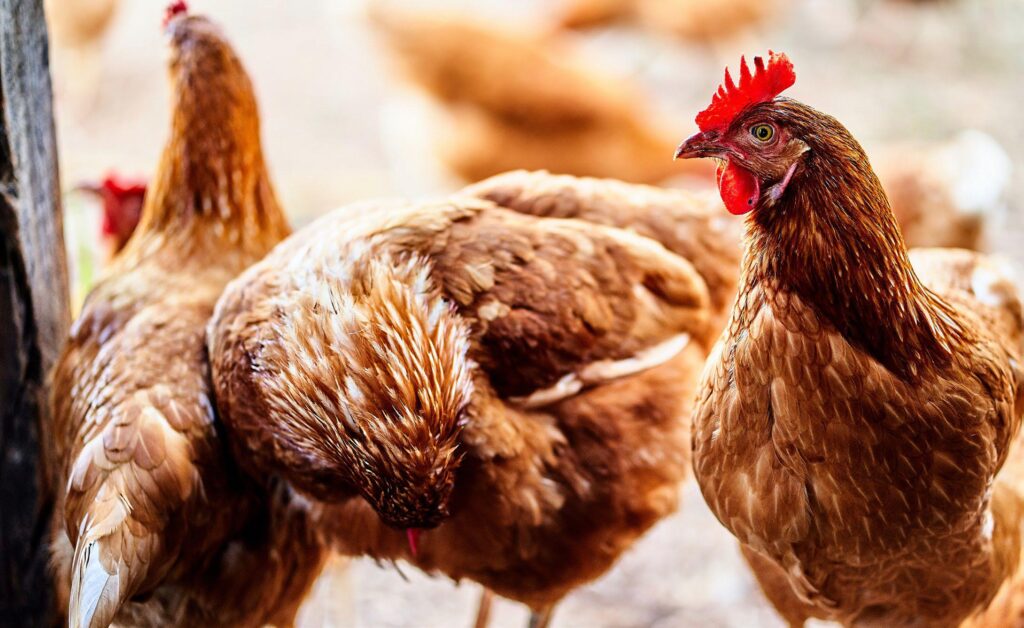Discover how small farmers are innovating to compete with giants like Amazon Fresh, emphasizing sustainability, community, and local authenticity.
As temperatures drop and days get shorter, poultry farmers need to take extra steps to keep their chickens healthy during the cold winter months. Fortunately, a few simple changes can make all the difference in keeping your chickens warm and safe.
The winter season has an enormous effect on poultry production in the USA, bringing down temperatures and causing issues such as lower egg output, decreasing water consumption, and reduction of fertility and hatchability. To combat these winter conditions and ensure maximum poultry production, winter poultry management is essential for farmers. With appropriate practice, winter farming can maximize efficient production while ensuring the health and welfare of animals. Thus, winter's impact on poultry farming needs to be taken very seriously by all involved in this industry.

Read More: Is Birdseed Safe For Chickens?
When cold weather comes around in the USA, chicken owners need to be aware of how to keep their flocks safe and warm during the winter. To ensure cold-winter survival for their chickens, many chicken owners protect against cold drafts and drafts from cold winds by making sure coops are properly insulated. The coop should prevent cold air from seeping through doorways or cracks in the walls which can adversely affect a hen's warmth.
During cold months, chickens also require more calories as they expend more energy trying to stay warm, meaning they will require more feed and possibly even a new source of food such as mealworms or root vegetables like potatoes. Adding an extra layer of straw or hay is another way to reduce heat loss and provide comfort; however, it is essential that these inner layers are kept dry at all times. Ultimately, with a bit of appropriate preparation and awareness, cold winter months can safely be negotiated by chickens in the USA.
As cold winter temperatures approach, it is important for chicken coop owners to take the necessary steps to prevent cold drafts from entering the coop. Freezing cold air drafts can quickly chill the chickens inside and potentially weaken their immune systems. The first step is to locate any holes, cracks, or slats that cold air can flow through, and use plywood to patch up these openings. Alternatively, a tarp, durable plastic sheeting, or Tyvek material can also be used to wrap the coop incredibly well. For optimal insulation, ensure that your chicken coop has a waterproof roof and don't forget to leave at least one essential ventilation opening unblocked!
To protect chickens from cold winter weather, adding additional insulation is key. Apart from sealing up the coop to shut out cold air, extra insulation and thermal mass help contain their own internal body heat better. Since an adult chicken's temperature is around 105-109°F, they naturally add a lot of warmth to enable their flock mates to stay warm. With extra insulation, cold drafts can be avoided effectively even in extremely cold environments.
Read More: How To Grow Your Farm Business: 5 Tips and Tricks
Keeping your chickens safe and comfortable in cold winter months requires monitoring temperature and humidity within their coop. Installing a thermometer can help you track these conditions, ensuring your chickens are neither too cold nor too damp. This will also provide insight into how well-insulated the coop is; with a properly winterized coop, temperatures inside should be significantly warmer than outside temperatures. With some careful scrutiny and cold-weather maintenance, these cold winter tips for chicken owners will keep their feathered friends happy and healthy all season long.
Winter can be harsh on chickens, especially if your area is cold and damp. One cold-sensitive part of a chicken to pay particular attention to is its comb and wattles. If these parts are too large, it makes the bird more vulnerable to frostbite. This is why single-comb roosters are at special risk in cold conditions. Therefore, special cold winter tips for chicken owners include adding extra insulation around the coop, taking steps to ensure adequate ventilation, and keeping an eye out for birds with larger combs and wattles who may need additional protection against singeing cold temperatures.
During cold winters, it is important to provide chickens with a protected outdoor space. A simple and effective way to do this is through the use of tarps or heavy-duty plastic sheeting. This can be used to cover the top or sides of a run area, providing protection from rain, snow, and wind. This will allow your chickens to get their much-needed fresh air and sunshine on cold days, while still providing protection against cold weather. If you are ambitious, more creative options such as polytunnels, hoop houses, or makeshift greenhouses are also available.
The key to caring for your chickens during colder weather is making sure their coops are well insulated. Install insulation on walls and roofs of the coop, or use plastic sheeting to create a barrier between them and the colder outside elements. If you live in an area with heavy snowfall, build up a berm around the coop that will help block out gusts of wind and other cold drafts. You can also add straw or wood shavings as bedding inside the coop which will provide additional warmth. Finally, make sure any windows, vents, or other openings are covered with wire mesh so that no unwanted guests can enter while keeping air circulating throughout the space.
Read More: 5 Ways To Increase Your Farmers Market Sales
In addition to providing warmth, it’s important to adjust your feeding routine as well. During colder weather, chickens require more energy than usual in order to stay warm and active so try increasing their feed slightly every day. Additionally, you may want to consider providing high-fat treats such as sunflower seeds or cracked corn which will help them generate body heat more efficiently. For water sources within the chicken coop itself, consider investing in heated buckets or containers so they don’t freeze over during extreme temperatures. If you have access to natural sources of water like streams or ponds nearby, however, be aware they can freeze over quickly and should be checked often for ice buildup.
By taking small but important steps like insulating your chicken coop properly and adjusting your feeding routine accordingly during winter months, you can ensure that your chickens stay happy and healthy in spite of colder temperatures outside. With proper care and attention throughout this season—and beyond—you’ll be able to continue enjoying fresh eggs from your flock year-round!
Discover how small farmers are innovating to compete with giants like Amazon Fresh, emphasizing sustainability, community, and local authenticity.
Drive customer traffic to your online farm store with email marketing, social media, in-person tactics, and our tailored solutions. Boost your agricultural business now!
Elevate your winter chicken care with expert tips. Keep your flock warm, healthy, and productive during the chilly months.
